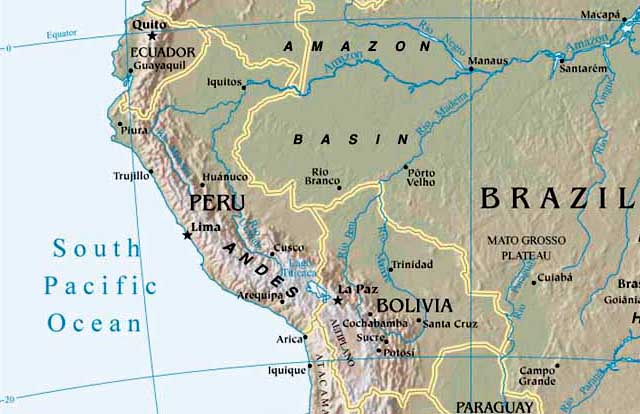The Bolivian President, Luis Arce, will be attending the 15th BRICS Summit, which is set to take place in Johannesburg, South Africa, in August.
This news was confirmed by Bolivia’s Foreign Minister, Rogelio Mayta.
Mayta expressed President Arce’s gratitude towards the South African President, Cyril Ramaphosa, for the invitation.
He added that Arce is honored to contribute to the discussions about the integration and development of the Global South.
The Foreign Minister stated that Arce will participate in discussions with the heads of state of Brazil, Russia, India, China, and South Africa.
These nations together represent 42% of the world population and generate 31.5% of the global GDP.

Mayta also mentioned that Arce can share the achievements and experiences of Bolivia’s Economic, Social, Community, and Productive Model.
This model has allowed Bolivia to progress towards accelerated industrialization and an open, transparent, inclusive, and non-discriminatory multilateral trading system.
Finally, it was shared that President Arce officially expressed Bolivia’s interest in joining the BRICS through a letter to the five presidents of the bloc.
Bolivia shares a common vision with these countries about an international order based on equality, solidarity, inclusion, consensus, mutually beneficial cooperation, and multilateralism, devoid of hegemony.
LONG WAITING LINE
Over 40 nations are showing interest in becoming members of BRICS, a bloc formed initially by Brazil, Russia, India, and China in 2009, with South Africa joining a year later.
South Africa’s ambassador, Anil Sooklal, reported that 22 countries have formally expressed interest, while a similar number have informally approached the group.
The idea of expansion was proposed by South Africa in 2018, with discussions beginning more earnestly last year.
BRICS, a body representing 42% of the global population, was created as an alternative to the influence of developed nations in the world’s economic structure.
Despite its considerable population representation, BRICS members possess under 15% of the voting rights at the World Bank and the International Monetary Fund.
Recently, the group’s expansion criteria have been under discussion.
Major nations from the Global South and some European countries have shown interest in membership. Despite this widespread interest, consensus on expansion is still uncertain.
While South Africa and China support growth and Russia is likely to concur, Brazil and India might oppose it due to concerns about the dilution of their influence.
These countries might instead support the idea of interested states remaining as observers.
The expansion of BRICS is a topic on the agenda for the upcoming meeting of tbloc’sc’s foreign ministers.

